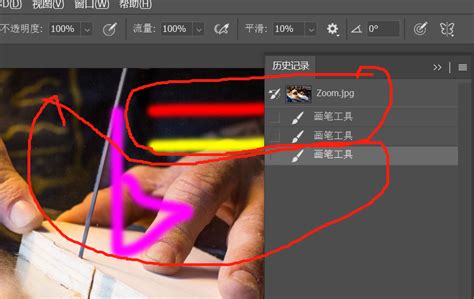① 英语中什么情况下时间前不加介词
在平时的学习中,我们注意到一般的时间状语前都有介词in/on/at或for 等,而实际上在英语中,有不少表示时间的状语前是不加介词的.
1.在 today, tomorrow, yesterday, the day before yesterday, 等表示时间概念的名词前一般不用介词. 例如:
1) What are you going to do tomorrow?
你们明天打算干什么?
2) We have had six lessons today.
我们今天上了六节课.
3) We had a good time the day before yesterday.
我们前天玩的很开心.
2.由this, that ,these, those 等用于表示时间概念的名词前,
前面往往不加介词.例如:
1) That morning he got up very early.
那天早上他起得很早.
2) What are you busy with these days?
这几天你在忙些什么?
3) We will have a big gathering this coming Saturday.
下星期六我们将进行一次大聚会.
3.由next, last, the next, the last 等用于表示时间概念的名词前时,前面不用介词修饰.例如:
1) We planted many trees last spring.
去年春天我们栽了许多树.
2) She said she would pay a trip to Suzhou the next month.
他说他下个月将去苏州.
3) The very next time I saw her, she was working in London.
在那次之后我又见到他时,他正在伦敦工作.
4.在each, any, every, some, all 等用于表示时间概念的名词前,一般不用介词来修饰. 例如:
1) The buses go every 10 minutes.
汽车每隔10分钟一辆.
2) Jack coughed all night.
杰克咳了一整夜.
3) We have to get up very early every day.
每天我们都必须早早起来.
那个得ON 因为是具体的某天上午或下午前
② 介词或时间状语问题:为什么有些表达时间的词需要加介词而有些则不用,比如on sunday
On sunday
in summer
它表示的是状态的意思,只要你能表达出这种状态就行
比如说,I ate so many cakes this morning
就是今天早上的意思
I ate so many cakes in morning,早上的时候吃了很多蛋糕,但是我不知道是哪个早上
③ 求问介词 知识讲解 时间状语前不用介词的几种情况
答:由形容词last, next等修饰的名词词组用作时间状语时,其前不用介词。故要去掉介词on. 该知识点也是大多学生都易出错的地方,现在就时间状语前不用介词的几种情况加以总结,供学习时参考:时间状语前不用介词的几种情况英语中作时间状语的短语前通常要加in, on, at, for等介词。例如:I get up at six o’clock in the morning. 我早上六点钟起床。Most of us work in the day and sleep at night. 我们中大多数人白天工作,晚上睡觉。She has taught English for about five years. 她教英语大约有五年了。但在下列情况下,时间状语前不用介词:一、当时间状语是today, tonight, yesterday, yesterday morning/ afternoon/ evening, tomorrow, tomorrow morning/ afternoon/evening等时。例如:There was a play yesterday afternoon.昨天下午有一场戏。She will be back tomorrow morning.她明天上午回来。二、由this, that ,these等构成的短语用作时间状语时,其前不用介词。例如:This term we are going to have a new subject.这学期我们将有一门新的课程。He didn’t go home that night.那天晚上他没回家。They are working on the farm these days. 这些天他们在农场工作。三、由形容词last, next等修饰的名词词组用作时间状语时,其前不用介词。例如:I saw him in the street sometime last week.上星期我在街上看见过他。Please come here earlier next time下次请早点来这儿。四、由every, each等构成的短语用作时间状语时,其前不用介词。例如:Do you do morning exercises every day? 你们每天做早操吗?They go to school by bike each day. 他们每天骑自行车去上学。五、在以“the day(week, month, year)+before/ after…”构成的时间状语前不用介词。例如:Where did you go the day before yesterday? 前天你去哪了?They came to this school the year before last. 他们是前年来到这所学校的。六、在以all 构成的短语作时间状语时,如:all day, all the week, all the year 等前面通常不用介词。例如:He was busy all day yesterday. 昨天他忙了一整天。She was ill in bed all the week. 她有病了,卧床整整一个星期。
④ everyWednesdayafternoon前为什么不加介词
由every,each等表示频率的副词构成的短语用做时间状语时,其前不用介词。
英语时间状语前不用介词的几种情况:
1.当时间状语是today,yesterday,tomorrow,tonight,yesterday/tomorrowmorning(afternoon,evening)等时,其前不用介词。
2.由this,that,these,those等构成的短语前不用介词。
3.由形容词last,next等指示代词修饰的名词词组用作时间状语时,前面的介词at,on,in一般省略。
4.在以“theday(week,month,year)+before/after?”构成的时间状语前不用介词。
5.由every,each等表示频率的副词构成的短语用做时间状语时,其前不用介词。
6.由on引出的特定日子,可以省略介词on。
7.for通常引出一段时间,当与表示静态的动词连用时可以省略。
8.以all构成的短语做时间状语,如allday,alltheweek,alltheyear等前面通常不用介词。
9.当atabout?表示时间时,介词at可以省略。
声明:易商讯尊重创作版权。本文信息搜集、整理自互联网,若有来源标记错误或侵犯您的合法权益,请联系我们。我们将及时纠正并删除相关讯息,非常感谢!




